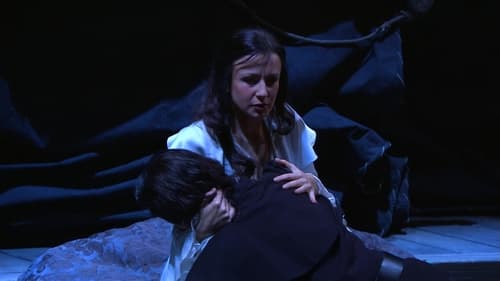
In the cold of winter, an exuberant poet lives in poverty with his three bohemian flatmates. His heart is warmed when he falls in love with his fragile neighbour, but then her illness takes a turn for the worse. In Opéra de Monte Carlo's production of Puccini’s beloved opera, set in Paris to the interwar period, the artists’ misery looks more like a chosen lifestyle than a suffered fate. Jean-Louis Grinda’s sumptuous staging reflects on Puccini’s romantic glorification of the precariousness of the human condition.

Marguerite
Disillusioned with life, the aged philosopher Faust calls upon Satan to help him. The devil Méphistophélès appears and strikes a bargain with the philosopher: he will give him youth and the love of the beautiful Marguerite, if Faust hands over his soul. Faust agrees, and Méphistophélès arranges matters so that Marguerite loses interest in her suitor Siébel and becomes infatuated with Faust. Faust initially seems to love Marguerite in return, but soon abandons her. Her brother Valentin returns from the war and is furious to find his sister pregnant. Will Faust repent his destructive actions, and can his soul, and Marguerite's, be saved?

Donna Anna

The Gran Teatre del Liceu’s 2017/2018 season opened with Rossini’s dramma giocoso Il viaggio a Reims, the “event piece” written exclusively for the coronation of France’s Charles X in Reims in 1825. Apart from the Rossini Opera Festival in Pesaro (one of the co-producers), this otherwise infrequently performed work has received a bright yet perhaps over-minimalist staging by Emilio Sagi. A fixed set portraying the sun deck and furnishings of a spa hotel (using only the stage front) provides the opera’s eclectic group of European aristocrats an unexpectedly informal aspect from the outset, replete with bathrobes, towels and slippers. This is novel, but confuses the audience as to who is who in the story. Not until the end of the second act, an hour and a half into the performance, does the cast change to more formal dining attire and the audience has a minimally clearer idea of the different nationalities (and idiosyncracies) portrayed.

In celebration of Verdi's 200th birthday in 2013, the Festival d’Aix-en-Provence produced the composer's colorful masterpiece Rigoletto for the first time in its history. Verdi expert Gianandrea Noseda conducted the London Symphony Orchestra in a production that marked the return of the Canadian stage director Robert Carsen to the festival following a 17 year hiatus. Carsen sets his interpretation of this classic opera in the cutthroat world of the circus. Based on Victor Hugo's play Le roi s’amuse, Verdi's opera in three acts Rigoletto premiered in 1851. Similar to the play that inspired it, the opera faced censorship because of its controversial subject of libertinism at court. The opera’s tragic story revolves around the licentious Duke of Mantua, his hunchbacked court jester Rigoletto, and the jester’s beautiful daughter, Gilda.

Micaëla
High Definition recording June 2014, Arena di Verona. This opulent production was directed by Franco Zeffirelli and sung by an international cast of excellent singers: Russian mezzo-soprano Ekaterina Semenchuk, soprano Irina Lungu, tenor Carlo Ventre and Carlos Alvarez. The famous opera is staged as a colourful feast for the eyes, true to its source and convincingly acted by soloists, chorus and ballet alike. Conducted by Henrik Nánási it is a gloriously sung musical experience.

Medora
The caption on the DVD sleeve reads “This Is how Verdi should be played!” and I could not agree more. The trio of principals: Ribeiro, Lungu, and Dalla Benetta , offer youthful exhuberance and intensity, good looks and glorious voices. The rest of the cast is equally good. Superb conductor, traditional production, great staging. Anf of course, Verdi’s exquisite music. It has renovated my faith in the totality of the Verdi canon, not only its most performed titles.

Marguerite
Disillusioned with life, the aged philosopher Faust calls upon Satan to help him. The devil Méphistophélès appears and strikes a bargain with the philosopher: he will give him youth and the love of the beautiful Marguerite, if Faust hands over his soul. Faust agrees, and Méphistophélès arranges matters so that Marguerite loses interest in her suitor Siébel and becomes infatuated with Faust. Faust initially seems to love Marguerite in return, but soon abandons her. Her brother Valentin returns from the war and is furious to find his sister pregnant. Will Faust repent his destructive actions, and can his soul, and Marguerite's, be saved?






